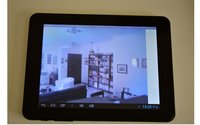 Smart home products have to create new
value if they are to be adopted.
Smart home products have to create new
value if they are to be adopted.
That’s the conclusion of a new study on various aspects of the Internet of Things, including smart lighting and other smart products in the home.
The adoption and ultimate success of smart home products centers around creating new value, both for end-consumers and the brands serving them, according to the study by Parks Associates.
Smart home products seem to be valued both by consumers and brands, based on adoption.
Almost half (44%) of consumers who have a connected security camera in their home access it remotely
on a daily basis and the majority (70%) of security system dealers plan to install a smart home device this year, according to the study.
Another recent study also suggested that home security
is top of mind for smart products in the home.
advertisement
advertisement
That study, conducted by Vanson Bourne for BoldChat by LogMeIn, found that of those who have an Internet-connected household product, the main
item being controlled by the majority (76%) of consumers was a home security system.
In terms of new value creation, the Parks study suggests that it could impact how consumers operate their
homes, as well as on how businesses are structured, according to Stuart Sikes, president of Parks Associates.
“IoT Innovations are driving long-term changes in consumer behaviors and
business models,” Sikes said.
“IoT adoption is tied to the ability to solve real customer problems. Monetization requires partnerships that make direct use of consumer data to
provide a superior user experience.”
One example would be connecting smart home products to the energy management companies to supply them with data that could contribute to better
informed business decisions.
If this data exchange resulted in a utility rebate, more than 70% of consumers say they would allow it, according to Parks.
“New smart home solutions
and cloud services are influencing how consumers communicate and manage their households, while the potential of the IoT is bringing in new players.”